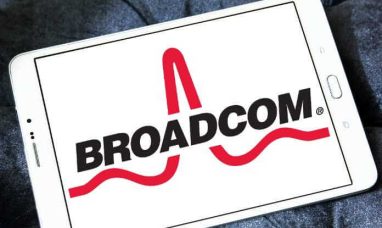Meme stocks have recently made a comeback on Wall Street, thanks to Keith “Roaring Kitty” Gill’s return to social media, reigniting interest in GameStop (NYSE:GME). Despite this renewed enthusiasm, analysts continue to advise against investing in GameStop due to its struggling business model.
For investors interested in adding an electronics retailer to their portfolios in 2024, analysts are instead recommending Best Buy (NYSE:BBY), which has recently reported impressive quarterly earnings and received an upgrade to “Buy” from UBS.
About Best Buy Stock
Best Buy, founded in 1966 as Sound of Music and rebranded in 1983, is a leading multinational consumer electronics retailer operating primarily in the U.S. and Canada. The company sells electronics, appliances, software, video games, and related services through physical stores and online platforms. Best Buy has a market cap of $20.2 billion.
Year-to-date, BBY stock is up 18%, recently setting a new 52-week high. It has outperformed the broader S&P 500 Index ($SPX), which is up 14.7% this year.
UBS analyst Michael Lasser believes Best Buy is well-positioned for further growth, anticipating a boost from a consumer appliance upgrade cycle and new product offerings like e-bikes. Lasser predicts these factors will drive a “nice recovery” in sales through the rest of this year and into 2025.
Lasser also highlighted Best Buy’s restructuring efforts, noting that the number of employees per store has decreased from 102 in FY’20 to 77 last year. He suggests that even a slight increase in staff, combined with a 3% rise in comparable sales next year, could drive earnings per share (EPS) to $7.30 or higher, compared to the current consensus of $6.70.
UBS raised its price target for Best Buy shares to $106, the highest on Wall Street, citing a compelling risk-reward balance.
Best Buy’s Recent Performance
Best Buy’s stock has been rallying since its well-received first-quarter results, released on May 30.
For Q1 of FY 2025, Best Buy reported revenues of $8.85 billion, down 6.5% year over year due to weakness in both domestic and international segments, missing expectations of $8.97 billion. Same-store sales declined by 6.1%, an improvement from the 10.1% decline a year ago.
However, EPS rose 4.4% to $1.20, surpassing the consensus estimate of $1.07. The company’s gross margin expanded to 23.3%, and operating margin improved to 3.3%. Best Buy’s EPS has exceeded expectations for the past five quarters.
Best Buy reported net cash from operating activities of $156 million, compared to an outflow of $331 million a year ago. Free cash flow was $4 million, reversing the previous year’s outflow of $535 million. The company ended the quarter with a cash balance of $1.5 billion.
Notably, Best Buy offers a dividend yield of 4% at current levels, higher than the retail sector median of around 2.2%, and has been raising dividends continuously for the past 13 years.
Factors Driving Best Buy’s Growth
Best Buy holds a significant position in the U.S. consumer electronics market, one of the largest in the world. The retailer commands a third of the market share in both the domestic computing and TV industries and 20% in gaming. With the consumer electronics market projected to grow at a CAGR of 7.63% from 2024 to 2032, reaching $1.47 trillion, Best Buy is well-positioned for future growth.
UBS noted that Best Buy should benefit from device upgrades, supported by its exclusive partnership with Microsoft (NASDAQ:MSFT) to sell AI-powered laptops. Microsoft’s new Copilot Plus products, about 40% of which are exclusive to Best Buy, along with upcoming AI-driven launches from Apple (NASDAQ:AAPL), are expected to drive sales. Additionally, improving housing trends are boosting appliance sales, setting the stage for a major replacement cycle for devices and electronics.
Beyond electronics, Best Buy enhances customer experience through its Geek Squad, offering tech support that prioritizes building relationships and ensuring customer satisfaction. This service-driven approach strengthens the in-store experience, fostering customer loyalty.
Analysts’ Views on Best Buy Stock
Analysts have a “Moderate Buy” rating on Best Buy stock, with 10 out of 22 analysts calling it a “Strong Buy,” up from six a few months ago. The remaining ratings include one “Moderate Buy,” 10 “Holds,” and one “Moderate Sell.”
UBS’s new price target of $106 implies a potential upside of 14.7%. At around 15 times forward earnings, Best Buy stock is valued at a discount compared to its retail peers.
Featured Image: Freepik















